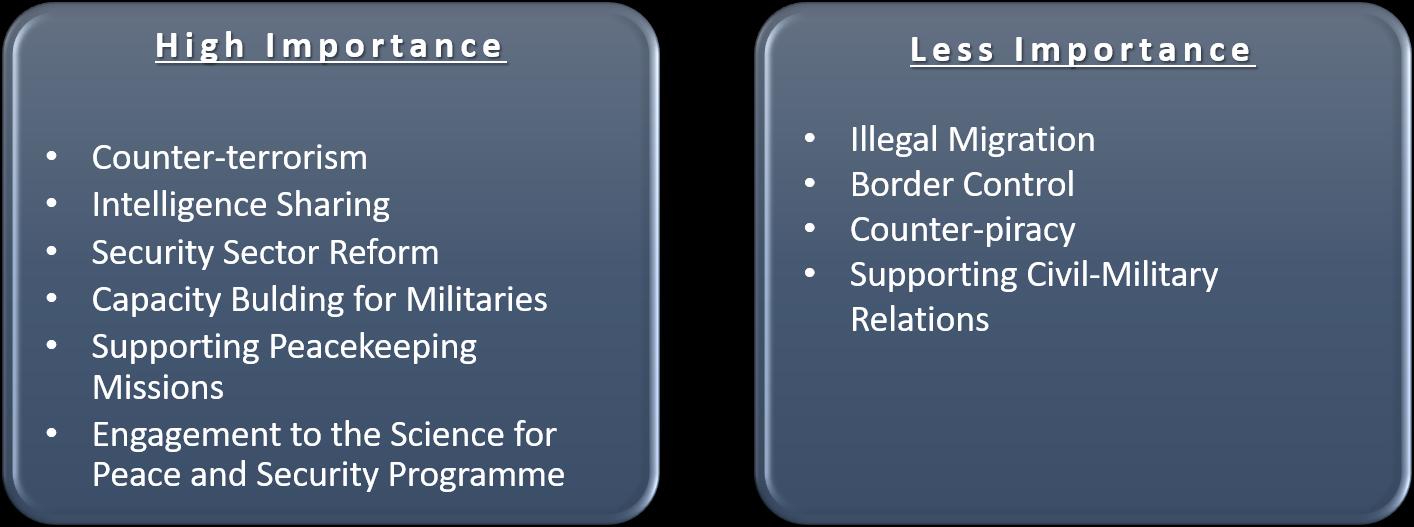OPEN PUBLICATIONS Figure 5: Security Challenges and Opportunities in Africa
Security Challenges
Opportunities
in Africa
These security challenges are spread across the continent. Regionally speaking, terrorist groups might differ from one region to another or change their characteristics. Zimbabwe, Libya, the Gulf of Guinea, Somalia, DRC, Mozambique and Ethiopia are regions or individual nations which have significant security challenges. The opportunities for NATO resulting from these security challenges begins with cooperation in security sector reform and encouraging good governance. Creating employment opportunities for the youth population and pursuing sustainable economic goals are other areas of potential cooperation. It is significant that the experts were almost in consensus about solving the security problems on the African continent through measures in the area of economics and infrastructure. Alternative policy options involving military collaboration with international organizations and military partnership to establish effective armies did not receive as much support from the experts participating in the research.
e. What must be the main Pillars of the NATO-Africa relationship? Since NATO has been structured primarily as a military institution, fruitful and trustworthy relations can best occur initially within the realm of military dialogue. This is because there continues to be a debate regarding the presence of external actors in the continent with one school of thought framing it through the lens of neo-imperialism. As a consequence, expanding the NATO-Africa cooperation into
16





